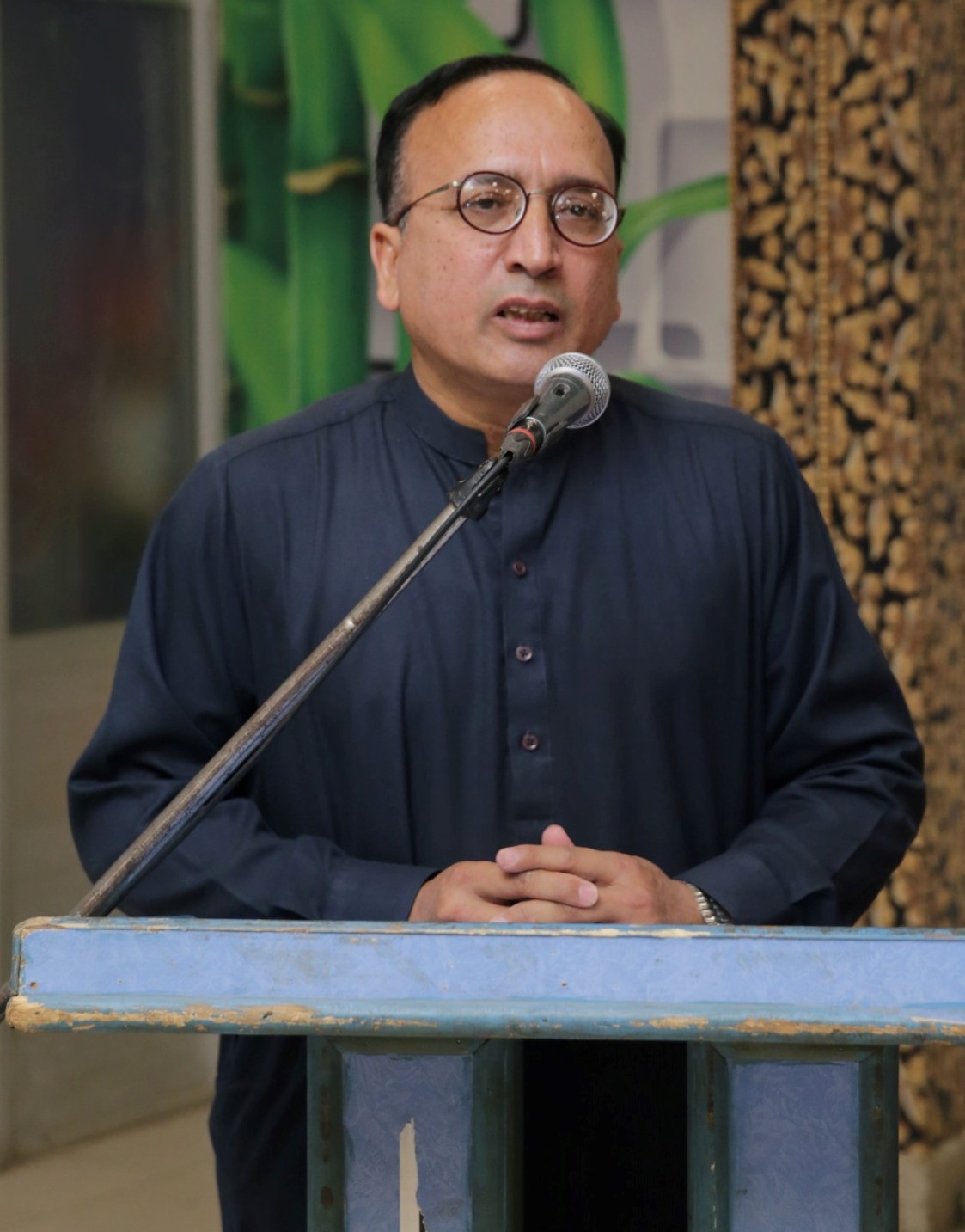Message from Chairman
Welcome to the DEAP Development Organization website,
and thank you for visiting us online! DEAP works on social
development issues, and is a growing civil society
organization of Pakistan. DEAP stands
for Development through Empowerment, Accountability and
Participation, and it is a registered organization under
Provisional Registration in terms of Section 6 (b) read with
Section 12, 14 & 18 of the Punjab Charities Act, 2018 with
Registration No. PB-2106800662893883. DEAP is a true Community Impact organization,
reaching out to address critical problems in the communities
around us. We work at tackling not just the symptoms, but
also the causes in issues related to Education and Health,
Women's Empowerment, Community Development and Civic Issues.
The objective is to ensure actual measurable and tangible
results - yardsticks to gauge our capabilities. DEAP was
created by a group of development activists to providing
free education facilities to poor children of deserving
families in city Chakwal (Punjab province of Pakistan). DEAP
has diversified its programmatic work and has grown into a
key civil society organization of Pakistan working on
Education, Health, Human Rights, Animal and Forest Rights in
Pakistan.
the DEAP Development Organization website,
and thank you for visiting us online! DEAP works on social
development issues, and is a growing civil society
organization of Pakistan. DEAP stands
for Development through Empowerment, Accountability and
Participation, and it is a registered organization under
Provisional Registration in terms of Section 6 (b) read with
Section 12, 14 & 18 of the Punjab Charities Act, 2018 with
Registration No. PB-2106800662893883. DEAP is a true Community Impact organization,
reaching out to address critical problems in the communities
around us. We work at tackling not just the symptoms, but
also the causes in issues related to Education and Health,
Women's Empowerment, Community Development and Civic Issues.
The objective is to ensure actual measurable and tangible
results - yardsticks to gauge our capabilities. DEAP was
created by a group of development activists to providing
free education facilities to poor children of deserving
families in city Chakwal (Punjab province of Pakistan). DEAP
has diversified its programmatic work and has grown into a
key civil society organization of Pakistan working on
Education, Health, Human Rights, Animal and Forest Rights in
Pakistan.
Its program coordination office is based in Chakwal and it
has been working with self help base and support of well off
families of Chakwal. Currently DEAP has been implementing
two projects in Chakwal i.e. first is child sponsorship
program for poor children of deserving families. DEAP has
been providing free copies, stationeries and free evening
tuition facility to each sponsor child on monthly basis. We
are providing school uniform with shoes to each child on six
monthly bases. DEAP also believes that extra curricular
activities are necessary for children so it arrange monthly
recreational activities at DEAP Academies. Second in health
sector, DEAP Physiotherapy center has been providing health
facilities to disable children disable male and disable
female of district Chakwal.
We are also working for strengthening the devolved structure
at district level and are providing support on regular basis
for capacity building of local organizations. DEAP believes
that development needs integrated approach. If we talk about
poverty reduction, or gender and development or sustainable
livelihood whatever we say we cannot achieve our goal of
having happy and healthy life unless and until we promote
integrated approach. In order to have sustainable
development we cannot segregate the sectors and their link
to support each other. Working in a single sector we may
achieve some growth in one of the sector but we can not
claim overall sustainable development unless and until we
work both at micro and macro levels. This requires restless
efforts.
Performance of public, social sector services generally
within Pakistan and specifically in Punjab has been
extremely poor. Basic services are poorly designed in terms
of their outreach to the rural poor and the overall lack of
accountability of the system to the poor has left large
pockets of population with no drinking water facilities,
poor sanitation, low literacy rates and high birth rates
adversely affecting community, specially women and children.
Pakistan Participatory Poverty Assessment report (DFID,
2001) mentions that the education and health care needs of
women appear to be of secondary priority at the household
level, the poor access of women to basic services is clear
evidence that the government shares responsibility for the
perpetuation of discriminatory practices. Within provincial
planning cycle, social sector programs are not awarded on a
need basis and rural-urban disparities have left rural
populations unnerved by basic services. These stark
realizations and continuous feedback from the deprived and
marginalized communities pushed DEAP to plan and design a
developmental program for the social empowerment and uplift
of the people of Pakistan.
I hope you will like the website and will inform us about
your feedback in the meanwhile.
ATIF ABBAS
Chief Executive, DEAP